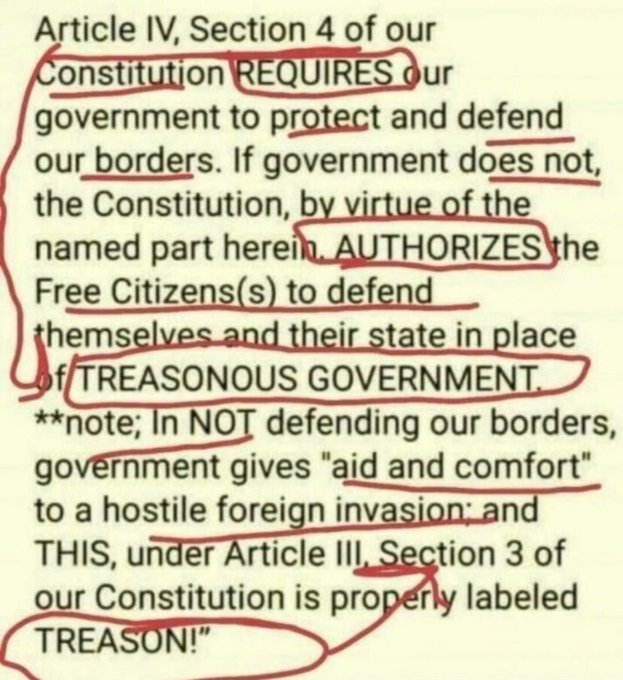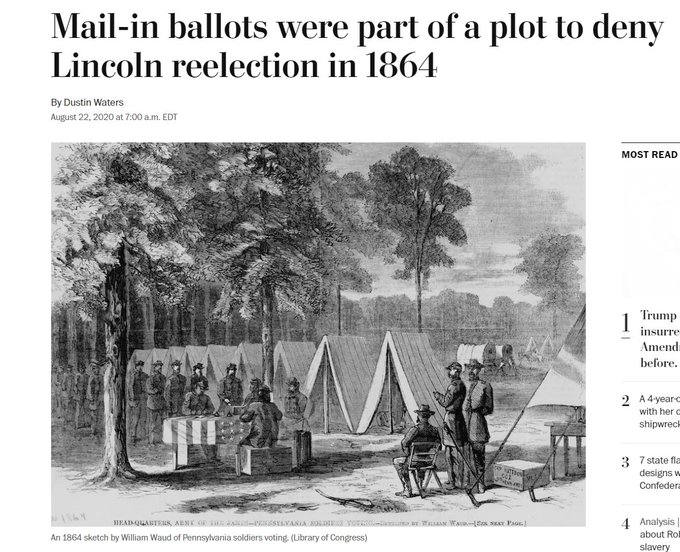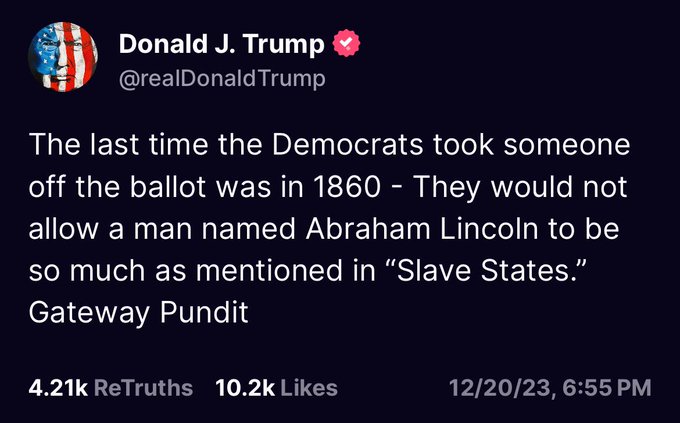Colleges
- AAC
- ACC
- Big 12
- Big East
- Big Ten
- Pac-12
- SEC
- Atlantic 10
- Conference USA
- Independents
- Junior College
- Mountain West
- Sun Belt
- MAC
- More
- Navy
- UAB
- Tulsa
- UTSA
- Charlotte
- Florida Atlantic
- Temple
- Rice
- East Carolina
- USF
- SMU
- North Texas
- Tulane
- Memphis
- Miami
- Louisville
- Virginia
- Syracuse
- Wake Forest
- Duke
- Boston College
- Virginia Tech
- Georgia Tech
- Pittsburgh
- North Carolina
- North Carolina State
- Clemson
- Florida State
- Cincinnati
- BYU
- Houston
- Iowa State
- Kansas State
- Kansas
- Texas
- Oklahoma State
- TCU
- Texas Tech
- Baylor
- Oklahoma
- UCF
- West Virginia
- Wisconsin
- Penn State
- Ohio State
- Purdue
- Minnesota
- Iowa
- Nebraska
- Illinois
- Indiana
- Rutgers
- Michigan State
- Maryland
- Michigan
- Northwestern
- Arizona State
- Oregon State
- UCLA
- Colorado
- Stanford
- Oregon
- Arizona
- California
- Washington
- USC
- Utah
- Washington State
- Texas A&M
- Auburn
- Mississippi State
- Kentucky
- South Carolina
- Arkansas
- Florida
- Missouri
- Ole Miss
- Alabama
- LSU
- Georgia
- Vanderbilt
- Tennessee
- Louisiana Tech
- New Mexico State
- Middle Tennessee
- Western Kentucky
- UTEP
- Florida International University
High School
- West
- Midwest
- Northeast
- Southeast
- Other
- Alaska
- Arizona
- California
- Colorado
- Nevada
- New Mexico
- Northern California
- Oregon
- Southern California Preps
- Washington
- Edgy Tim
- Indiana
- Kansas
- Nebraska
- Iowa
- Michigan
- Minnesota
- Missouri
- Oklahoma Varsity
- Texas Basketball
- Texas
- Wisconsin
- Delaware
- Maryland
- New Jersey Basketball
- New Jersey
- New York City Basketball
- Ohio
- Pennsylvania
- Greater Cincinnati
- Virginia
- West Virginia Preps
ADVERTISEMENT
Install the app
How to install the app on iOS
Follow along with the video below to see how to install our site as a web app on your home screen.
Note: This feature may not be available in some browsers.
You are using an out of date browser. It may not display this or other websites correctly.
You should upgrade or use an alternative browser.
You should upgrade or use an alternative browser.
Us civil war was over
- Thread starter sammyk
- Start date
Slavery
A simpleton would say. Most real historians understand it was a little more complicated that just one issue.
Exactly. The root cause was about states rights. Slavery was a singular issue that pertained to that ability to decide. When southern states were told they could not decide on that issue, they chose to secede and started their own government. The federal government told them they can’t.A simpleton would say. Most real historians understand it was a little more complicated that just one issue.
Exactly. The root cause was about states rights. Slavery was a singular issue that pertained to that ability to decide. When southern states were told they could not decide on that issue, they chose to secede and started their own government. The federal government told them they can’t.
There was foreign country interference too. States Rights like Slavery were only a part of a bigger picture. Everyone likes to bend it to their particular narrative. At the end of the day alot of American men died because of numerous issues. Sad and why we shouldn't be removing history and all of it should be taught in detail. Imagine it being fought with today's weapons systems. A million would have parished in weeks instead of years.
Last edited:
You made that up.A simpleton would say. Most real historians understand it was a little more complicated that just one issue.
“Today, most professional historians agree with Stephens that slavery and the status of African Americans were at the heart of the crisis that plunged the U.S. into a civil war from 1861 to 1865.”
“Elizabeth Varon remarks that although “scholars can agree that slavery, more than any other issue, divided North and South, there is still much to be said about why slavery proved so divisive and why sectional compromise ultimately proved elusive.”
“Most historians would disagree, and strongly! "Slavery was the principal cause of the U.S. Civil War, period," said Bob Sutton, chief historian for the National Park Service. "Yes, politics was important. Yes, economics were important. Yes, social issues and states’ rights were important. But when you get to the core of why all these things were important, it was slavery!"
“Probably 90 percent, maybe 95 percent of serious historians of the Civil War would agree on the broad questions of what the war was about and what brought it about and what caused it,” McPherson said, “which was the increasing polarization of the country between the free states and the slave states over issues of slavery, especially the expansion of slavery.”
“
The most widespread myth is also the most basic. Across America, 60 percent to 75 percent of high-school history teachers believe and teach that the South seceded for state's rights, said Jim Loewen, author of "Lies My Teacher Told Me: Everything Your American History Textbook Got Wrong" (Touchstone, 1996) and co-editor of "The Confederate and Neo-Confederate Reader: The 'Great Truth' about the 'Lost Cause'" (University Press of Mississippi, 2010).
"It's complete B.S.," Loewen told LiveScience. "And by B.S., I mean 'bad scholarship.'"
In fact, Loewen said, the original documents of the Confederacy show quite clearly that the war was based on one thing: slavery. For example, in its declaration of secession, Mississippi explained, "Our position is thoroughly identified with the institution of slavery — the greatest material interest of the world … a blow at slavery is a blow at commerce and civilization." In its declaration of secession, South Carolina actually comes out against the rights of states to make their own laws — at least when those laws conflict with slaveholding. "In the State of New York even the right of transit for a slave has been denied by her tribunals," the document reads. The right of transit, Loewen said, was the right of slaveholders to bring their slaves along with them on trips to non-slaveholding states.
So, when you ask where those quotes originated, copy them, paste them into Google, and read the result.
Slavery was a part of it. It was not the entire reason. The 13 states wanted to decide on all their issues and felt the constitution gave them that right. They felt the US government was violating their constitution. They chose to leave and form their own government. The federal government said they cannot leave and chose by force to destroy that government.You made that up.
“Today, most professional historians agree with Stephens that slavery and the status of African Americans were at the heart of the crisis that plunged the U.S. into a civil war from 1861 to 1865.”
“Elizabeth Varon remarks that although “scholars can agree that slavery, more than any other issue, divided North and South, there is still much to be said about why slavery proved so divisive and why sectional compromise ultimately proved elusive.”
“Most historians would disagree, and strongly! "Slavery was the principal cause of the U.S. Civil War, period," said Bob Sutton, chief historian for the National Park Service. "Yes, politics was important. Yes, economics were important. Yes, social issues and states’ rights were important. But when you get to the core of why all these things were important, it was slavery!"
“Probably 90 percent, maybe 95 percent of serious historians of the Civil War would agree on the broad questions of what the war was about and what brought it about and what caused it,” McPherson said, “which was the increasing polarization of the country between the free states and the slave states over issues of slavery, especially the expansion of slavery.”
“
The most widespread myth is also the most basic. Across America, 60 percent to 75 percent of high-school history teachers believe and teach that the South seceded for state's rights, said Jim Loewen, author of "Lies My Teacher Told Me: Everything Your American History Textbook Got Wrong" (Touchstone, 1996) and co-editor of "The Confederate and Neo-Confederate Reader: The 'Great Truth' about the 'Lost Cause'" (University Press of Mississippi, 2010).
"It's complete B.S.," Loewen told LiveScience. "And by B.S., I mean 'bad scholarship.'"
In fact, Loewen said, the original documents of the Confederacy show quite clearly that the war was based on one thing: slavery. For example, in its declaration of secession, Mississippi explained, "Our position is thoroughly identified with the institution of slavery — the greatest material interest of the world … a blow at slavery is a blow at commerce and civilization." In its declaration of secession, South Carolina actually comes out against the rights of states to make their own laws — at least when those laws conflict with slaveholding. "In the State of New York even the right of transit for a slave has been denied by her tribunals," the document reads. The right of transit, Loewen said, was the right of slaveholders to bring their slaves along with them on trips to non-slaveholding states.
So, when you ask where those quotes originated, copy them, paste them into Google, and read the result.
If you remove the slavery issue...there would NEVER have been a "states rights" question.
I could be wrong, but I would imagine there had to be many other reasons that led to that final straw. I’m also sure a lot of those reasons have purposely been deleted and forgotten from historical references. I don’t trust the current msm, so why should we trust their historical narrative?If you remove the slavery issue...there would NEVER have been a "states rights" question.
I base my comments on this simple fact...the southern states wanted to continue subjugating human beings. Many northern states disagreed.I could be wrong, but I would imagine there had to be many other reasons that led to that final straw. I’m also sure a lot of those reasons have purposely been deleted and forgotten from historical references. I don’t trust the current msm, so why should we trust their historical narrative?
You made that up.
“Today, most professional historians agree with Stephens that slavery and the status of African Americans were at the heart of the crisis that plunged the U.S. into a civil war from 1861 to 1865.”
“Elizabeth Varon remarks that although “scholars can agree that slavery, more than any other issue, divided North and South, there is still much to be said about why slavery proved so divisive and why sectional compromise ultimately proved elusive.”
“Most historians would disagree, and strongly! "Slavery was the principal cause of the U.S. Civil War, period," said Bob Sutton, chief historian for the National Park Service. "Yes, politics was important. Yes, economics were important. Yes, social issues and states’ rights were important. But when you get to the core of why all these things were important, it was slavery!"
“Probably 90 percent, maybe 95 percent of serious historians of the Civil War would agree on the broad questions of what the war was about and what brought it about and what caused it,” McPherson said, “which was the increasing polarization of the country between the free states and the slave states over issues of slavery, especially the expansion of slavery.”
“
The most widespread myth is also the most basic. Across America, 60 percent to 75 percent of high-school history teachers believe and teach that the South seceded for state's rights, said Jim Loewen, author of "Lies My Teacher Told Me: Everything Your American History Textbook Got Wrong" (Touchstone, 1996) and co-editor of "The Confederate and Neo-Confederate Reader: The 'Great Truth' about the 'Lost Cause'" (University Press of Mississippi, 2010).
"It's complete B.S.," Loewen told LiveScience. "And by B.S., I mean 'bad scholarship.'"
In fact, Loewen said, the original documents of the Confederacy show quite clearly that the war was based on one thing: slavery. For example, in its declaration of secession, Mississippi explained, "Our position is thoroughly identified with the institution of slavery — the greatest material interest of the world … a blow at slavery is a blow at commerce and civilization." In its declaration of secession, South Carolina actually comes out against the rights of states to make their own laws — at least when those laws conflict with slaveholding. "In the State of New York even the right of transit for a slave has been denied by her tribunals," the document reads. The right of transit, Loewen said, was the right of slaveholders to bring their slaves along with them on trips to non-slaveholding states.
So, when you ask where those quotes originated, copy them, paste them into Google, and read the result.
It was one of several issues goofball. Not sure what is so hard to comprehend about that. Making it just about slavery is what people who want to rewrite history do.
That was indeed how a Lincoln and the north sold it.The core issue was indeed slavery.
And you would be. The North/South economic disagreements were going on since the 1780's, with the growing factory industrial system in the north and the southerners wanting to be agrarian. Still, no "civil war" was fought. It took ONE issue to push it to the brink of war, and that was Lincoln's election and his promise to not allow slavery to SPREAD to new territories or states. So, for anyone to say that "slavery wasn't the reason' would be wrong. Completely. Totally. Wrong.I could be wrong, but I would imagine there had to be many other reasons that led to that final straw. I’m also sure a lot of those reasons have purposely been deleted and forgotten from historical references. I don’t trust the current msm, so why should we trust their historical narrative?
EDIT: Furthermore, you had the "Nullification Crisis" in the 1830's, yet no "civil war".
You actually just confirmed what I said and told me I was wrong. I said obviously it was likely the last straw.And you would be. The North/South economic disagreements were going on since the 1780's, with the growing factory industrial system in the north and the southerners wanting to be agrarian. Still, no "civil war" was fought. It took ONE issue to push it to the brink of war, and that was Lincoln's election and his promise to not allow slavery to SPREAD to new territories or states. So, for anyone to say that "slavery wasn't the reason' would be wrong. Completely. Totally. Wrong.
EDIT: Furthermore, you had the "Nullification Crisis" in the 1830's, yet no "civil war".
You actually just confirmed what I said and told me I was wrong. I said obviously it was likely the last straw.
Slavery was already headed to being ended. So it wasn't the last straw. It was one of many issues. People have been attempting to rewrite the history of it since the war ended.
Yes, people have been doing that. Just like the narrative that Democrats and Republicans “switched sides”. And “it was really the current Republican Party who owned the slaves back then when they were Democrats”. Don’t laugh, it’s really believed by today’s younger generation.Slavery was already headed to being ended. So it wasn't the last straw. It was one of many issues. People have been attempting to rewrite the history of it since the war ended.
Convenient timeline.And you would be. The North/South economic disagreements were going on since the 1780's, with the growing factory industrial system in the north and the southerners wanting to be agrarian. Still, no "civil war" was fought. It took ONE issue to push it to the brink of war, and that was Lincoln's election and his promise to not allow slavery to SPREAD to new territories or states. So, for anyone to say that "slavery wasn't the reason' would be wrong. Completely. Totally. Wrong.
EDIT: Furthermore, you had the "Nullification Crisis" in the 1830's, yet no "civil war".
Slavery was a biggie to the richThat was indeed how a Lincoln and the north sold it.
Agree 100%
So many things led up to the Civil War...slavery was the straw.
Poor people who fought was not fighting for slavery they was fighting for everything but slavery.
Yes. Only the wealthy could afford slaves. Poor whites didn’t own themSlavery was a biggie to the rich
Agree 100%
So many things led up to the Civil War...slavery was the straw.
Poor people who fought was not fighting for slavery they was fighting for everything but slavery.
That is how I feel. There was no single rallying cry. Different people had gripes and someone needed one thing to get the ball rolling. Afterwards the war was sold about freeing the slaves so people would be OK paying for reconstruction.Slavery was a biggie to the rich
Agree 100%
So many things led up to the Civil War...slavery was the straw.
Poor people who fought was not fighting for slavery they was fighting for everything but slavery.
Seen a documentary/movie on this than started reading about it . Lots of southern boys stopped fighting when they found out that they was fighting for the richmans slaves.Yes. Only the wealthy could afford slaves. Poor whites didn’t own them
Watch " the free state of Jones " a very good fact based movie.
Seen a documentary/movie on this than started reading about it . Lots of southern boys stopped fighting when they found out that they was fighting for the richmans slaves.
Watch " the free state of Jones " a very good fact based movie.
I would suggest people read some history instead. Before the Democrats burn the books.
From PA. I think that’s where the war was wonStill bitter your side lost?
From PA. I think that’s where the war was won
750,000 to over a Million Americans died. Not sure I would say anyone really won.
Apparently you don't know much about the war then.From PA. I think that’s where the war was won
Seen a documentary/movie on this than started reading about it . Lots of southern boys stopped fighting when they found out that they was fighting for the richmans slaves.Yes. Only the wealthy could afford slaves. Poor whites didn’t own them
Watch " the free state of Jones " a very good fact based movie.
This civil war will have many reasons but one will be the straw ...treason by the obiden regime will start the new civil war...

Slavery
ok? And? Half the US population died over greedy politicians.
I bet it's save to say it was those dirty evil white Republicans who died to free those black folks .ok? And? Half the US population died over greedy politicians.
That is wrong. The Union fought to preserve the nation, not to end slavery. One can argue the Confederacy fought for their right to maintain slavery but slavery wasn't why the Union foughtI base my comments on this simple fact...the southern states wanted to continue subjugating human beings. Many northern states disagreed.
It is NOT wrong...you are correct in the fact that the Union fought to preserve the nation.That is wrong. The Union fought to preserve the nation, not to end slavery. One can argue the Confederacy fought for their right to maintain slavery but slavery wasn't why the Union fought
I am also correct with this : The southern states wanted to continue subjugating human beings. Many northern states disagreed.
Similar threads
- Replies
- 10
- Views
- 153
- Replies
- 19
- Views
- 226
- Replies
- 1
- Views
- 205
- Replies
- 18
- Views
- 296
ADVERTISEMENT
ADVERTISEMENT





